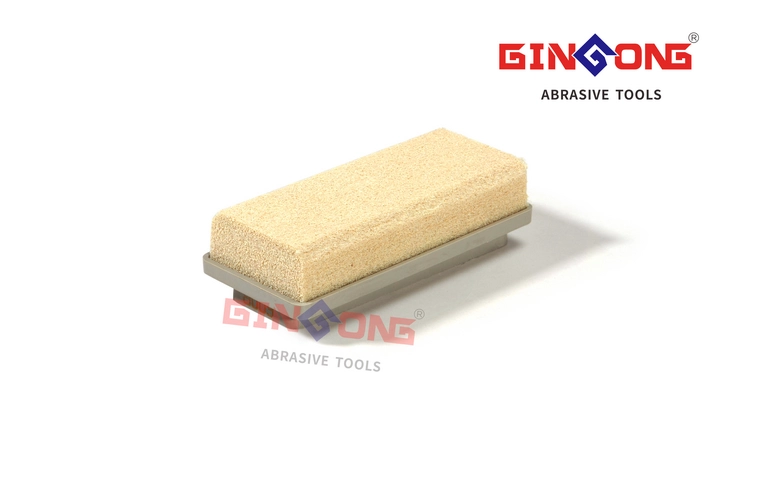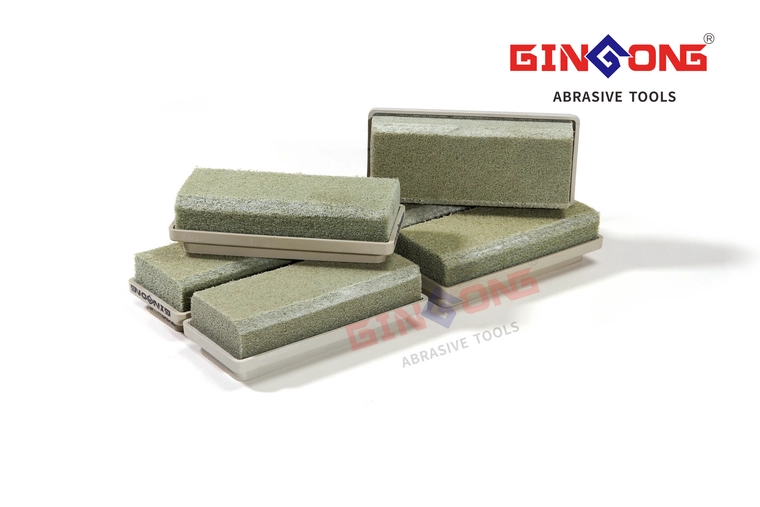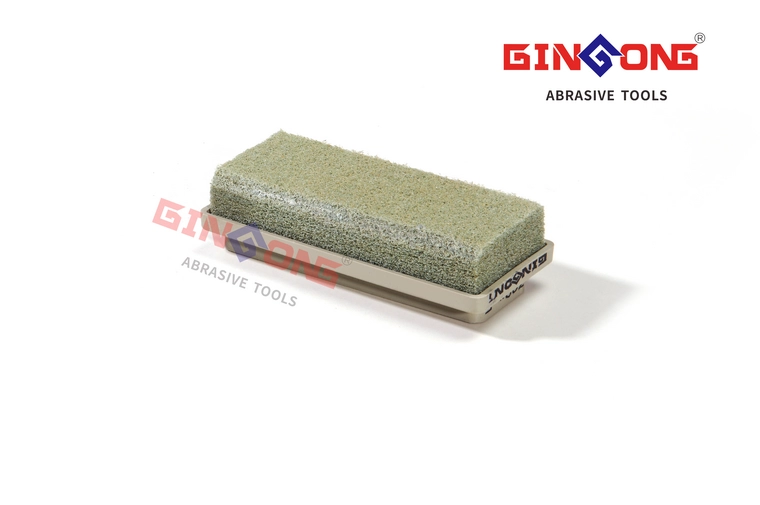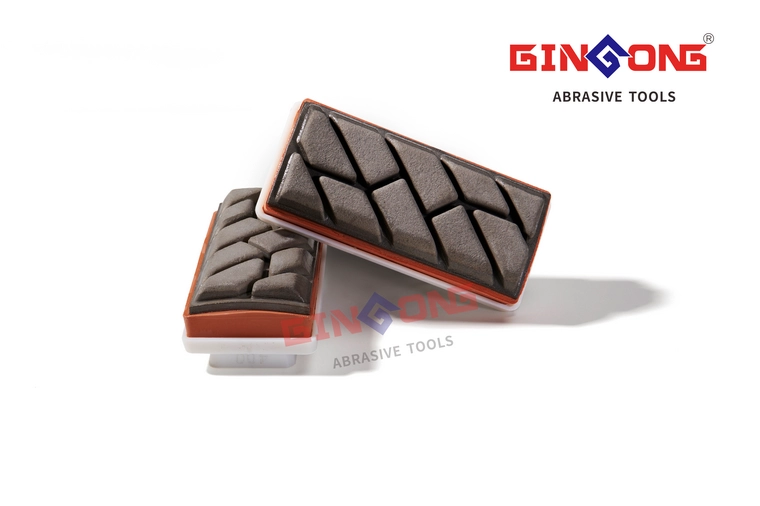In the realm of construction and renovation, precision and quality are paramount, particularly when dealing with tile installations. Grinding blocks for tile grinding machines are pivotal in achieving these standards, offering a diverse range of applications that cater to both aesthetic and functional requirements of flooring. These tools are not only essential for efficient material removal and surface preparation but also for ensuring the longevity and durability of the tiles. From smoothing out irregularities to perfecting the final finish, the strategic use of these blocks significantly elevates the craftsmanship of tile work. Let's explore how these tools transform ordinary tiling into a meticulously crafted surface.
A grinding block for a tile grinding machine is a specialized, abrasive component designed to smooth and refine the surface of tiles by removing excess material. Crafted from durable materials such as diamond or silicon carbide, the grinding block composition is crucial for ensuring efficient and precise material removal. This component plays a pivotal role in shaping and finishing tiles, making it an indispensable tool for achieving desired surface textures and dimensions.
The functionality of grinding blocks extends beyond mere abrasion. They are engineered to withstand the stresses of grinding, ensuring longevity and consistent performance. Grinding block durability is thus a key consideration, as it directly impacts the operational lifespan and maintenance requirements of the grinding machine. Regular maintenance, including cleaning and checking for wear, is essential to preserve the block's efficacy and prevent machine downtimes.
Furthermore, grinding block customization allows users to adapt the block to specific materials and finish requirements. This adaptability ensures that operators maintain control over the grinding process, tailoring the approach to meet precise aesthetic and structural specifications. Such customization enhances the utility of grinding blocks, making them a versatile tool in tile finishing processes.
Grinding blocks are primarily utilized to remove floor coatings, smooth rough surfaces, and correct imperfections on concrete and terrazzo floors. These tools are indispensable in achieving the desired level of surface preparation required for subsequent applications, such as painting or the application of new coatings.
In the process of coating removal, grinding blocks effectively strip away old paint, epoxy, or adhesive layers, leaving a clean surface ready for new treatments.
The capability to smooth out imperfections is another significant application of grinding blocks. They meticulously level out dips and ridges, ensuring a uniform and smooth surface. This is particularly critical in environments where precision is paramount, such as in manufacturing facilities or warehouses.
Additionally, high spot leveling is seamlessly achieved with these robust blocks, making them ideal for correcting uneven floor sections and preventing potential hazards.
Moreover, grinding blocks play a crucial role in stain removal. Whether it's removing oil spills, chemical stains, or other contaminants, these blocks restore the aesthetic and functional integrity of flooring surfaces.






Having explored the applications of grinding blocks, we now examine the various types available for specific tile grinding tasks. Diamond grinding blocks stand out for their exceptional cutting power, facilitating heavy-duty tasks like leveling and tough coating removal. These blocks ensure that professionals can manage rigorous demands with efficiency and precision.
Resin-bonded grinding blocks, known for their softer composition, are preferable for achieving a refined appearance on delicate tiles such as ceramic or marble. Their ability to polish and finish surfaces smoothly makes them indispensable for high-quality cosmetic enhancements.
Metal-bonded grinding blocks are celebrated for their long-lasting performance. These robust blocks are designed to withstand aggressive grinding, making them ideal for shaping and material removal in larger-scale projects. Their durability ensures sustained operation without frequent replacements.
Electroplated grinding blocks excel in detailed tasks due to their sharpness and precision. They are perfect for intricate tile edges and detailed grinding work, where control and accuracy are paramount.
Lastly, specialty grinding blocks offer customised options tailored to unique materials like granite or porcelain. These blocks are specially crafted to meet specific grinding and polishing needs, providing a bespoke solution for specialized applications.
Each type is engineered to facilitate control and mastery over different grinding scenarios.
Grinding blocks, essential for effective tile machining, exhibit specific features that enhance their performance. These include variations in materials and grit levels tailored to different grinding needs, and distinct bonding techniques that ensure durability.
Additionally, compatibility with various equipment and methods of grinding plays a crucial role in their functionality and effectiveness.
Our grinding blocks are crafted from bonded abrasives and premium industrial diamonds, available in a range of grit levels from 8 to 80 for diverse material applications. This variety ensures optimal performance across different tasks, from heavy-duty material removal to achieving a smooth finish.
Whether you are engaged in surface preparation or precision grinding, the choice of grit level plays a pivotal role in determining the quality of results. Lower grit numbers are typically employed for more aggressive material removal, ideal for handling tougher materials or correcting significant imperfections.
For projects requiring finer work, higher grit levels provide the necessary delicacy to achieve a smooth and refined finish without compromising the surface integrity. This flexibility is crucial for professionals who demand control over their work process and outcomes.
Standard diamond grinding blocks are suitable for general use, while specialized models are available for soft concrete or materials like mortar and asphalt. Each type is designed to meet specific needs, ensuring that every grinding task is supported by tools that maximize efficiency and precision, leading to consistently high-quality results in tile grinding applications.
Bonding, a crucial component of grinding blocks, significantly influences their durability and effectiveness in various grinding applications. The bonding strength of a grinding block dictates how well the block can maintain the integrity of its diamond segments, which are essential for efficient material removal and surface preparation. A robust bond ensures that the abrasive properties of the block are maximally utilized, leading to improved grinding efficiency and longer lifespan of the tool.
For professionals seeking control over their grinding operations, understanding the nuances of bonding materials can greatly aid in selecting the right block for their specific needs. The type of bonding material used affects how the diamond segments interact with different tile materials, impacting the overall precision and finish.
Here is a table summarizing key aspects of bonding in grinding blocks:
| Aspect | Impact on Grinding Performance |
|---|---|
| Bonding Strength | Ensures durability and retention of diamond segments |
| Surface Preparation | Influences the smoothness and accuracy of the prepared surface |
| Abrasive Properties | Dictates the rate of material removal and efficiency |
| Diamond Segments | Determines cutting capability and lifespan |
| Grinding Efficiency | Affects the speed and quality of grinding operations |
Professionals should choose their grinding blocks based on these factors to optimize outcomes and maintain control over their tile grinding projects.
What are the essential features that distinguish high-quality grinding blocks used in tile grinding machines?
First and foremost, product compatibility is crucial. The grinding blocks are designed to fit seamlessly with leading brands such as Edco, Diamond Product, and Husqvarna floor grinders. This ensures that the equipment functions optimally without the risk of damage or inefficiency due to mismatched components.
The grinding block composition also plays a pivotal role. These blocks are crafted from materials that provide the perfect balance between hardness and resilience, enabling effective surface preparation while minimizing wear and tear. This specific composition aids in achieving a smooth surface finish, essential for high-quality outcomes in tile installation or renovation projects.
Furthermore, tool longevity is a significant factor. High-quality grinding blocks are engineered to withstand the rigors of prolonged use, ensuring that they remain effective over time without frequent replacement. This durability not only contributes to cost-efficiency but also to sustained performance, which is vital for professionals who demand reliability and control in their work processes.
In addition to their compatibility and material composition, the grinding method employed by grinding blocks significantly influences their performance in tile grinding machines. The choice between wet or dry grinding techniques is pivotal, as each serves distinct functions and influences the outcome.
Wet grinding, often favored for its capacity to keep dust at bay, utilizes water to cool abrasive materials, thereby prolonging the life of diamond tools and enhancing the polishing process. This method is essential for projects requiring extensive surface preparation, such as tile restoration and the smoothing of concrete floors.
Conversely, dry grinding is preferred when quick setup and cleanup are crucial. This method allows for precision grinding, achieving a smooth finish on ceramic tiles without the mess of water. However, it necessitates effective dust extraction systems to manage airborne particles and maintain a clean work environment.
Both methods utilize diamond tools designed to tackle the hardness of ceramic tiles and concrete. The choice of abrasive materials, whether for wet or dry grinding, directly correlates with the efficiency of the grinding process and the quality of the final surface. Thus, selecting the appropriate grinding method is critical for achieving desired results in tile grinding applications.
Grinding blocks significantly enhance the efficiency and quality of finishes in tile work by facilitating faster material removal and ensuring smoother, more consistent surfaces.
| Benefits | Description | Relevance |
|---|---|---|
| Surface Preparation | Rapid removal of excess material | Sets foundation for smooth finishes |
| Smooth Finishes | Eliminates rough edges and high spots | Improves aesthetic and safety |
| Consistent Results | Uniform treatment across different tiles | Ensures professional quality |
| Material Compatibility | Works with ceramic, porcelain, and stone | Versatile for various project needs |
| Cost Efficiency | Durable, reducing frequent replacements | Economical for long-term use |
These grinding blocks streamline the tile installation process by removing imperfections quickly and efficiently, setting the stage for subsequent operations like polishing. With their ability to work on various tile materials, professionals maintain control over their projects, ensuring that each piece meets high standards of quality. Moreover, the cost efficiency of durable grinding blocks means fewer replacements and consistent performance, which is crucial for managing budgets in large-scale or frequent tile installations. This comprehensive utility makes grinding blocks an indispensable tool in achieving precision and quality in tile work.
Selecting the appropriate grinding block for your tile project is crucial for achieving optimal results and efficiency. The choice between diamond versus resin grinding blocks primarily depends on the material hardness and the desired finish. Diamond blocks are ideal for tougher materials like granite, ensuring durability and high performance, whereas resin-bonded blocks are better suited for softer, more delicate tiles like ceramics, providing a smoother finish without causing damage.
To ensure you maintain control over your project, consider the following:
Understanding these aspects will empower you to make informed decisions, leading to superior and precise tile finishes.
Yes, grinding blocks, often equipped with diamond blades, can be utilized for both ceramic and porcelain tiles, ensuring optimal surface preparation, tile polishing, and refinishing in tile restoration projects, offering precision and control.
Grinding block lifespan varies, but replacement frequency should be guided by signs of wear and maintenance tips for cost efficiency. Typically, replace blocks after noticeable performance decline or visual damage to ensure optimal operation.
Yes, eco-friendly grinding blocks are available, offering sustainable options with biodegradable materials. These green grinding blocks represent eco-conscious choices and provide environmentally friendly alternatives for those prioritizing ecological impact in their operations.
Yes, grinding blocks can be utilized for both wet and dry applications, ensuring compatibility with various tile materials, meeting specific surface levelness requirements, and minimizing environmental impact through reduced block replacement frequency.
Grinding blocks adeptly handle uneven tile surfaces, excelling in surface leveling, tile smoothing, edge trimming, grout removal, and surface preparation, ensuring meticulous control over the final finish and uniformity of the tiled area.
In conclusion, grinding blocks for tile grinding machines epitomize the fusion of ancient craftsmanship with modern technology, ensuring precision and quality in tile finishing.
These tools not only facilitate the restoration and beautification of flooring but also embody the relentless pursuit of perfection in the field of construction.
As artisans continue to harness these robust tools, the enduring quest for impeccability in surface finishing is significantly advanced, echoing the meticulous artistry of yesteryears.
GINGONG in China offers high-quality diamond polishing and edge grinding tools alongside ceramic machinery accessories. Our integrated solutions cater to individual needs, ensuring optimal performance and efficiency. We lead the industry in ceramics polishing, emphasizing effectiveness, cost control, and environmental sustainability. With "Sanmo" machines and meticulous attention to detail, GINGONG delivers top-notch abrasive products, setting the standard for excellence.
Contact us for a free quote of your ideal ceramic tile Grinding Blocks!
